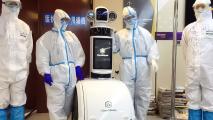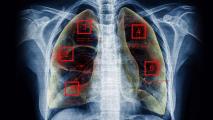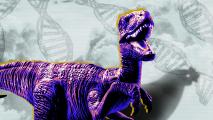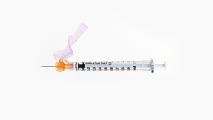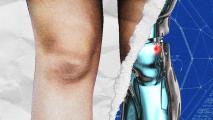
Biotech
Human history has been all but defined by death and disease, plague and pandemic. Advancements in 20th century medicine changed all of that. Now advancements in 21st century medicine promise to go even further. Could we bring about an end to disease? Reverse aging? Give hearing to the deaf and sight to the blind? The answer may be yes. And soon.
More
How to improve shopping for the elderly during a pandemic
To improve shopping for the elderly during the coronavirus pandemic, stores have set “seniors-only” hours, while volunteers deliver supplies for free.
Experts are 3D printing coronavirus supplies for hospitals
After an Italian firm 3D printed in-demand coronavirus supplies for a hospital, others in the community were inspired to offer their own help.
First coronavirus vaccine is ready for human testing
The experimental coronavirus vaccine, mRNA-1273, began human testing on March 16, several weeks ahead of expectations.
The coronavirus hospital staffed by robots
A robot-run coronavirus hospital in Wuhan, China, is just one remarkable example of how technology is helping combat the global COVID-19 outbreak.
What is protecting kids against the coronavirus?
Something is protecting kids against the coronavirus, and researchers want to figure out what it is so they can use it to develop a treatment.
World’s fastest supercomputer finds 77 drug candidates that could help battle COVID-19
The Summit supercomputer made quick work of complicated simulations to identify 77 compounds that could be promising COVID-19 treatments.
More than $1 million in prizes for coronavirus solutions
Emergent Ventures is awarding more than $1 million in coronavirus prizes to people who make significant progress in combating COVID-19.
Developing a better mind-controlled prosthetic hand
This new technique allows a person to control their prosthetic hand precisely and in real-time by amplifying the nerve signals from their residual limb.
Blood plasma from coronavirus survivors could save lives
A drug company is using the blood plasma of coronavirus survivors to develop a treatment for those still battling the disease.
Gates Foundation funds at-home coronavirus testing project
The Gates Foundation is funding an at-home coronavirus testing project in Seattle, with the goal of testing thousands of people for COVID-19 daily.
Reminiscence therapy is helping seniors at “dementia villages”
At a growing number of “dementia villages,” staff members use reminiscence therapy to help seniors return to a time when they felt happy and safe.
AI can detect coronavirus infections far faster than humans
New artificial intelligence systems can detect coronavirus infections far faster than human doctors and could help end the COVID-19 outbreak.
Should we turn chickens into dinosaurs?
These scientists are studying chickens to learn more about dinosaur DNA, and their findings could help us better understand our own genetic code.
US’s first drive-thru coronavirus clinic opens in Seattle
A Seattle hospital system has opened a drive-thru coronavirus clinic, a place where people can be tested for COVID-19 without leaving their cars.
This adjustable heart valve would grow as a child ages
A new, prototype artificial heart valve can adjust to a child’s growing body, potentially sparing them from multiple open-heart surgeries before adulthood.
Safe injection sites are legal, US court rules
A U.S. judge has ruled that safe injection sites, places where users can consume drugs under medical supervision, don’t violate federal drug laws.
Algorithm clears thousands of marijuana convictions in just one minute
With this new system that identifies candidates for criminal record clearance and even auto-fills forms, offenders don’t even need to apply.
“Electronic nose” can detect a cancer precursor on patients’ breath
A new study found that an electronic nose could be an improved screening tool for Barrett’s esophagus, a precursor to esophageal cancer.
Building an artificially intelligent, open-source prosthetic leg
We’ve come a long way since the first prosthetic leg, and “smart” limbs, equipped with computing capabilities and…
Why aren’t the World Bank’s pandemic bonds helping fight COVID-19?
The World Bank sold pandemic bonds to address global health emergencies, but it has yet to release any of the money to help fight the COVID-19 outbreak.
Get inspired with the most innovative stories shaping the world around us.
















